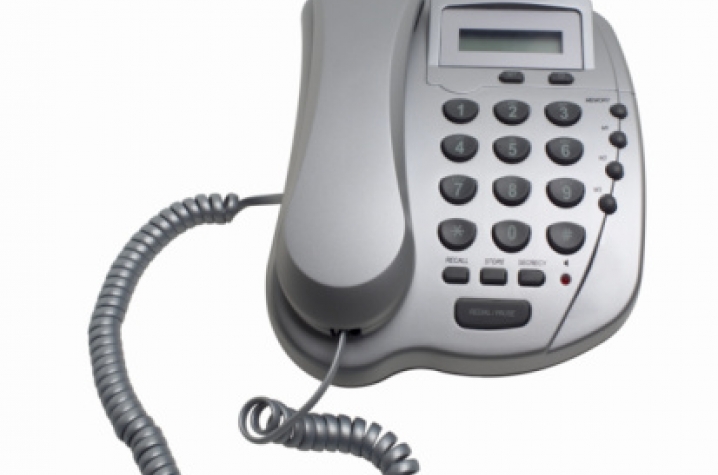Kentucky Lags in Intrastate Long-distance Access Reform

LEXINGTON, Ky. (Nov. 29, 2011) − The Center for Business and Economic Research (CBER), which is headquartered in the Gatton College of Business and Economics at the University of Kentucky, today released a white paper titled “Intrastate Switched Telephone Access Charges in Kentucky.”
Switched access charges are prices that local telephone service providers charge wireline long-distance providers for connecting long-distance calls to their local exchange customers.
Interstate long-distance calls are between individuals in different states, whereas intrastate long-distance calls are between individuals in the same state. Interstate access rates are governed by the Federal Communications Commission (FCC), and intrastate access rates are regulated by the Kentucky Public Service Commission. Economic inefficiencies exist with this system because intrastate access charges are not set at the same price as interstate access charges, even though there is no difference to the provider for the cost of the service.
Among the key findings in the report are:
- Each of the states bordering Kentucky – Illinois, Indiana, Missouri, Ohio, Tennessee, Virginia, and West Virginia – has implemented policy to decrease intrastate access charges. Several states have gone as far as requiring providers’ intrastate access rates to mirror their interstate access rates, which are governed by the FCC, while others have been less aggressive but still require providers to lower their rates. Kentucky has not revisited access reform since 1999 and is the only state in the region which has failed to address intrastate access reform.
- There are economically sound reasons why two products with similar functionality and similar costs—intrastate and interstate long-distance connection services to local exchanges—should have similar prices. Higher access charges lead to higher prices for intrastate long-distance services, as well as higher prices for goods whose production processes require intrastate long-distance communication. Inefficiently high access charges reduce competition in the intrastate long-distance market, and they lead to suboptimal investment in the present and the future. A final economic inefficiency of the current access charge system is that it creates arbitrage opportunities by charging different prices for essentially the same product, resulting in wasteful spending that could be avoided.
"An economic inefficiency exists with this system because intrastate access charges are not set at the same price as interstate access charges, even though there is no difference to the provider for the cost of the service," said CBER Associate Director Christopher Jepsen, co-author of the paper.
"The FCC has identified reform of this system, as well as other related programs or policies, as key to reforming the telecommunications investment landscape in the U.S. to allow and incentivize further deployment of broadband networks to reach unserved households and businesses," added co-author Frank Scott, Gatton Endowed Professor of Economics in the Gatton College.
“CBER’s research supports our belief that Kentucky should join its neighbors in reforming long-distance telephone access charges in order to help consumers, spur investment, and drive broadband availability," said Brian Mefford, CEO of Connected Nation, Inc. "The Federal Communications Commission (FCC), in a recently-adopted regulation yet to be implemented, has begun to address one aspect of intrastate access charges (specifically charges levied for the termination of a long-distance phone call), but has not dealt with intrastate access charges levied for the origination of a long-distance phone call. This part of intrastate access rates has yet to be reformed,” said Mefford. “Connected Nation advocated last year, as part of a coalition of Kentucky-based organizations, for the Public Service Commission (PSC) to enact access charge reform and UK’s white paper provides ample, data-driven support for the PSC to do just that.”
Digital copies of CBER's report, “Intrastate Switched Telephone Access Charges in Kentucky,” can be obtained at the CBER website at http://cber.uky.edu or by calling 859-257-7675.
MEDIA CONTACT: Carl Nathe, (859) 257-3200; Michele Sparks, (859) 257-0040.




